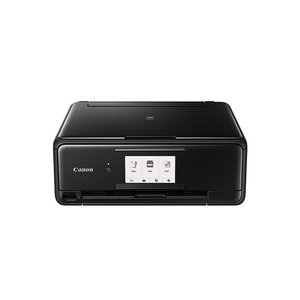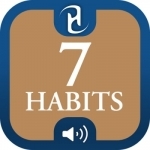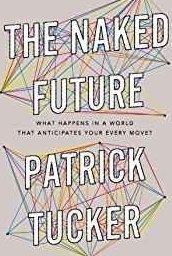
Canon PIXMA TS9150
Tech Watch
Canon’s PIXMA TS9150 is a stylish and feature-packed all-in-one inkjet colour printer, offering...
BookblogbyCari (345 KP) rated The Naked Future in Books
Aug 5, 2018
This is a book about how the digital footprint we leave behind us can be used to make predictions about our future in all aspects of our lives. But are we seeing the coming to being of a dystopian science fiction, or are we tapping into a new superpower?
Every app on every device we use leaves a digital trail about us, and this has implications in the fields of medicine and the spread of infections, education and learning, and crime prediction, through to movie preference and dating.
The book predominantly examines the value to society in general but also looks at the benefits to the individual. Of course, these benefits come at a cost to our privacy, which the book also briefly addresses. Each chapter is centered on its own topic. I will mention each but in the interests of brevity won’t go into detail on each topic.
Chapter 1 begins by describing how certain apps can be extremely useful warning providers, but by the end of the chapter, we are looking at how your smartphone apps can be used to locate you, even when your GPS is turned off and you’re not geo-tagging posts or tweets. With modern statistical models and enough data points, it’s possible to predict where you will be down to the hour and within a square block one and a half years from now. Turning off your GPS doesn't actually make you less predictable, it just makes your predictability level harder to detect - your future remains naked.
Similarly, in Chapter 2 which examines deliberate self-tracking, Tucker notes that Fitbit users who are confused or ignorant of the device’s privacy settings are inadvertently sharing the data details of their sexual activity.
This seems like frightening stuff, but then the conversation turns to more benevolent uses of such technology. Chapter 3, by way of an imagined story, examines how such technology can be used to predict the spread of dangerous infections, including the identification of new strains of virus as new mutations occur.
Chapter 4 looks at the use of such technology in weather forecasting, and how it’s been used to make way for insurance against the effects of the weather for affected businesses. Chapter 5 explores how movie/book choice and ratings can be used to predict what makes a good movie/book.
We go back to the frightening stuff in Chapter 6. Here Tucker talks about how the smartphone has become the ultimate shopping accessory. Knowing what habitual time an individual wants a coffee, cig, or beer, is ideal for online advertisers, who will be able to send you a voucher/coupon or a mere suggestion right there on the spot. There could also be surveillance systems examining what you pick up and consider buying but don't put into basket /trolley. Tucker goes on to describe how data brokers such as Acxiom have begun selling on to advertisers access to not only your data to also to your future decisions.
Chapter 7 looks at education and learning, and makes the following good points: “What telemetric education offers is the chance for all students to raise their hands and be heard, without fear of confirming some unflattering, broadly held perception about their social group.” And “Imagine for a moment the power of knowing beforehand how well you would perform on a test but how disempowered you would feel if that same future was naked to your competition, or to your future potential employers.”
I like the title of chapter 8 “When Your Phone Says You’re In Love”. Here Tucker tells how online dating sites have become a living social science lab. Again here your personal details can be sold on. In the future, you could be rating your actual get-togethers on the app. Already invented is a “sociometer” which detects unconscious biological signals which show what role you’re taking in a conversation, and can then produce predictions on how the rest of the conversation will go.
Chapters 9 and 10 look at predictions in the where, when and who of acts of crime. He discusses where it has worked so far. But on this Tucker says “Predictive policing in the wrong hands looks less like a boon to public safety and more like a totalitarian hammer.”
The book concludes with Chapter 11, titled “The World That Anticipates Your Every Move”. Here one interviewee said as “Privacy is a blip on the radar of history.” Indeed the chapter ends with an obituary to privacy, where Tucker says “we will feel increasingly powerless against the tide of transparency rendering this planet in a new form as surely as the movement of glaciers carved our canyons and valleys.”
I’ve highlighted here the more worrisome aspects of the topics, but it’s important to note that Tucker does aim to offer a prescription for the situation, though it’s spread out in occasional paragraphs here and there rather than as a useful reference at the end. That said I found the actionable advice was rather brief and unoriginal.
Tucker presents a fair and balanced view of this important and highly relevant topic of our times, and the book is clearly well-researched. Some chapters show a little humor which was fun, but although the book is aimed at the layman, I often felt like I was reading a science textbook. The book is a real eye-opener, especially if it’s something you hadn’t given much thought to. The overall message of the book is clear: our data is already out there, but it’s ours first and foremost, and we can be savvy and use it to our advantage.
Kristy H (1252 KP) rated Wishful Thinking in Books
Feb 13, 2018
I'll confess that a good portion of this book made me cringe. Not because it's bad. In fact, it's the opposite. It's a smartly written, captivating novel with a harried heroine who captures your heart pretty quickly. For me, the book was stressful because it hit home! A busy working mother who has demands at the office, but who also wants to spend time with her kids? That certainly describes a lot of us. Much like when I'm watching an action or horror movie for a first time, I felt myself tensing, anxiously wondering what was going to happen to Jennifer. Was she going to get caught using the app? Was the Jennifer at the office going to somehow show up with her kids? Would her co-workers find out? Her kids? Would the app make her sick? This couldn't go on forever, right?
And that's basically the premise behind Wicoff's clever novel. Of course, being in two (and over time, as Jennifer becomes dependent on the app, three places) places isn't all it's cracked up to be. Jennifer is tired, experiencing some strange sensations, potentially losing friendships, and wait, is she aging rapidly when she's living two days in the span of what should only be one?
Wicoff does a great job of showing the pressures many working parents feel. It's true - sometimes you do feel like you have to be a superwoman! Her book is also populated with fun characters -- in particular, Dr. Sexton, Jennifer's kooky neighbor, who also happens to be a genius scientist and inventor of said app.
If it all sounds a little improbable, it is, and you'll have to be prepared to suspend disbelief a bit, but Wicoff does such a great job, that it isn't really that hard. The book veers off a bit in its final quarter, turning more from the harried working mom scene, to a bit of an almost mystery/avenger plot, which is also completely improbable, and a very strange twist, but it's fun, too. You can't help but rooting for Jennifer (and Dr. Sexton, too). Overall, a crazy 3.5 star rating.
(Note, I received an advanced copy of this book in return for an unbiased review.)

Ravensburger Puzzle - the jigsaw collection
Games and Entertainment
App
The best jigsaw puzzle app for iPhone and iPad - of course from Ravensburger. A huge selection of...

Bibi & Tina: Pferdeabenteuer
Games and Entertainment
App
Aufregendes PFERDEABENTEUER mit Bibi und Tina für echte Pferdefreundinnen! Empfohlen von...

Blibli - Belanja Online
Shopping and Lifestyle
App
#1 Online Shopping Mall Indonesia Gratis Pengiriman | Cicilan 0% | Cash-on-Delivery | Pengembalian...

Snaptee - Custom Tshirt
Shopping and Lifestyle
App
Snap your masterpiece and we make & ship it as a tee! Snaptee is the first mobile app in the world...

Audioteka - audiobooki
Book and Entertainment
App
Audioteka to największy w Polsce serwis z audiobookami i słuchowiskami online, oferujący już...

7 Habits of Highly Effective People, by Stephen Covey, Audiobook Meditation and Business Learning Program-Franklin Covey
Book and Business
App
BONUS! Get a Free Ebook With Your Download: NEW! Groundbreaking Audio Meditation App uses text to...

Italian <-> Portuguese Slovoed Compact talking dictionary
Reference
App
#1 DICTIONARY TECHNOLOGY IN THE WORLD 43 000 entries and 10 000 Italian audio pronunciations...

